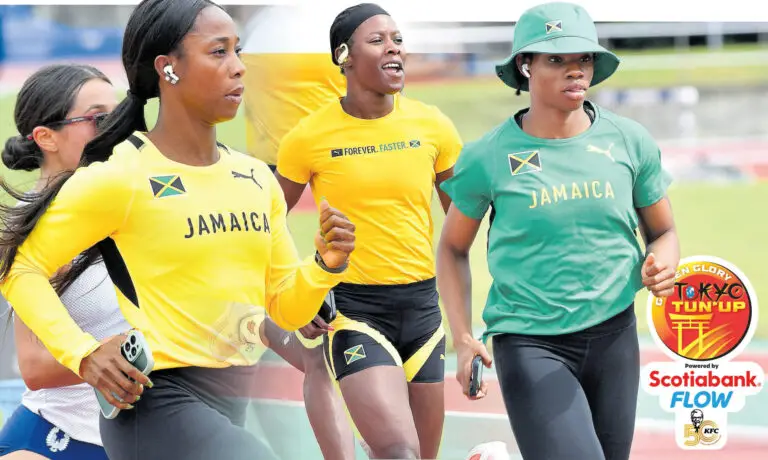The lights of Tokyo will shine on more than just a competition this week—they’ll illuminate a nation in transition. Jamaica’s track and field program, long synonymous with sprinting supremacy, arrives in Japan with two overlapping storylines: the farewell of a queen and the emergence of heirs.
For nearly two decades, Shelly-Ann Fraser-Pryce has been more than a sprinter—she’s been the embodiment of Jamaican resilience. Now, at 38, she prepares for her last world championship appearance, her final blocks on a stage she once dominated with unmatched ferocity. Her exit doesn’t feel like the closing of a book; rather, it feels like the passing of a torch still burning white-hot.
The Shift in Weight
Jamaica’s legacy has often been a double-edged sword. Medals glitter in the archives, but they cast a shadow of expectation heavy enough to crush the next generation before they’ve truly begun. This year, however, the pressure has a different contour. Coach Maurice Wilson speaks of a squad bound less by comparison to the past and more by their unity in the present.
These aren’t just young athletes trying to “replace” legends—they are competitors writing a story under their own signatures. Names like Ackelia Smith, Tina Clayton, and Kishane Thompson are entering arenas not as understudies, but as contenders.
What’s at Stake
Every lap, every leap, every stride this week is bigger than the stopwatch. For Fraser-Pryce, it’s the punctuation mark on one of track and field’s greatest careers. For the rest, it’s an audition for permanence. The mixed 4x400m relay, the 100m heats, the long jump qualifiers—each event is less about the schedule and more about symbolic thresholds.
Tokyo represents a mirror: will Jamaica see only nostalgia staring back, or will it glimpse its own future reflected in fresh talent?
A Tradition That Refuses to Fade
Rivals have studied Jamaica’s formula, replicated its training systems, and invested heavily to match its sprinting machinery. Yet, as Wilson points out, the essence of Jamaican track and field lies beyond mechanics—it’s in the cultural fabric. It’s in the island’s fierce relationship with speed, where every schoolyard race feels like a prologue to greatness.
The baton may be passing, but the race itself is far from over. Jamaica’s sprinting tradition doesn’t end with Fraser-Pryce—it evolves, sharpens, and reemerges, carried forward by new legs hungry for the finish line.
This championship, then, is less about a curtain call and more about a stage reset. One legend bows; others rise. And as ever, the world will be watching Jamaica—waiting to see if history repeats itself, or if something entirely new is about to be written.






